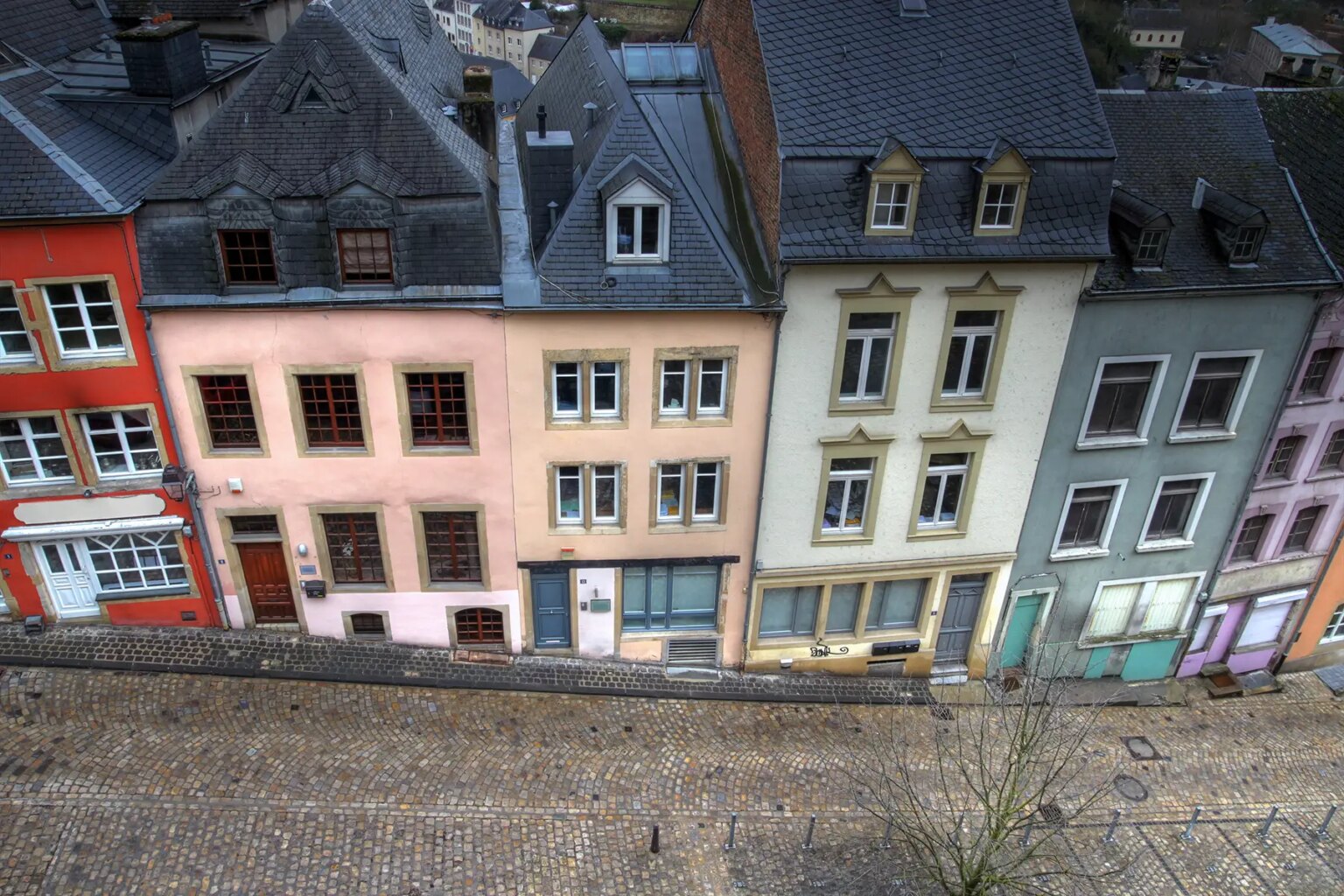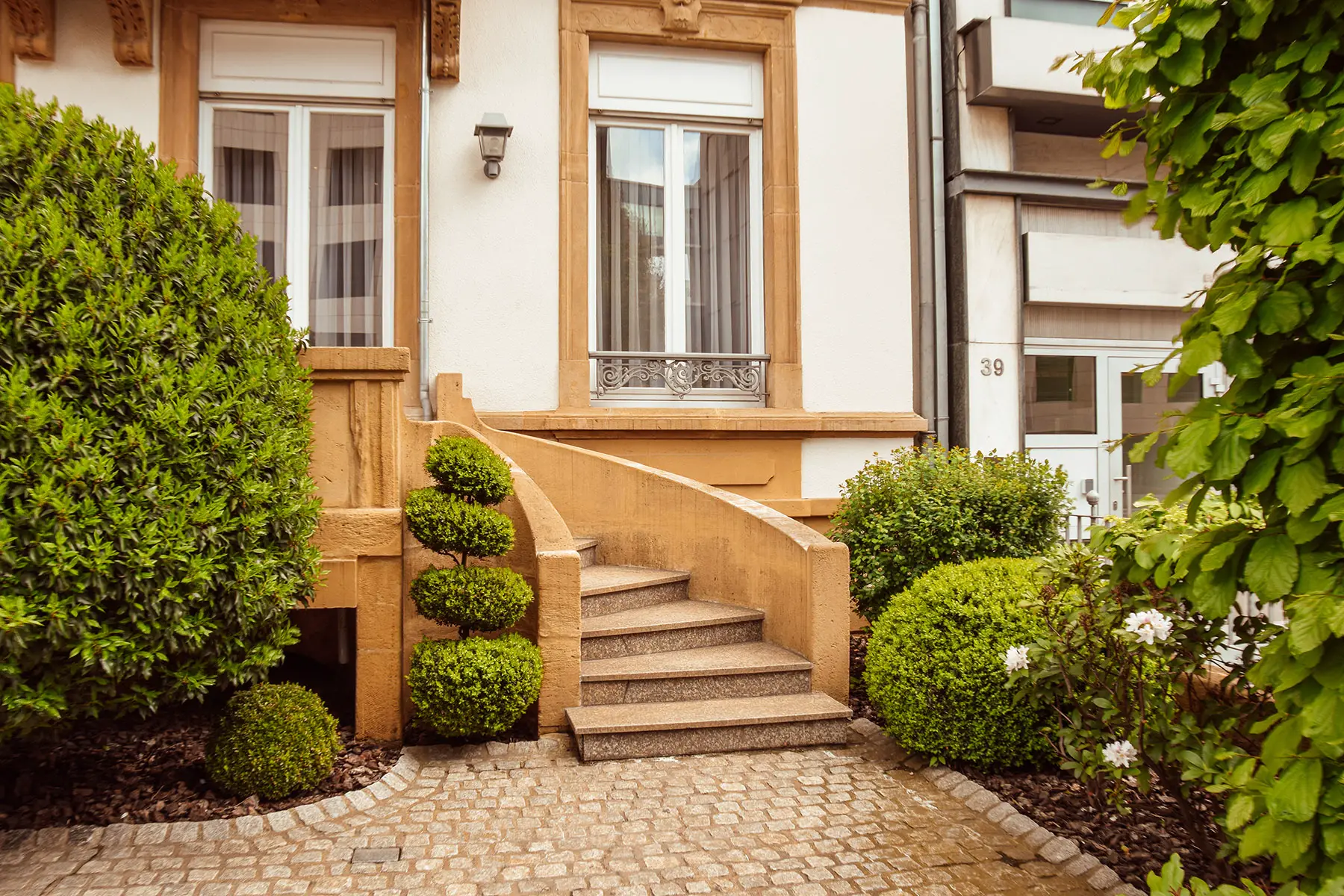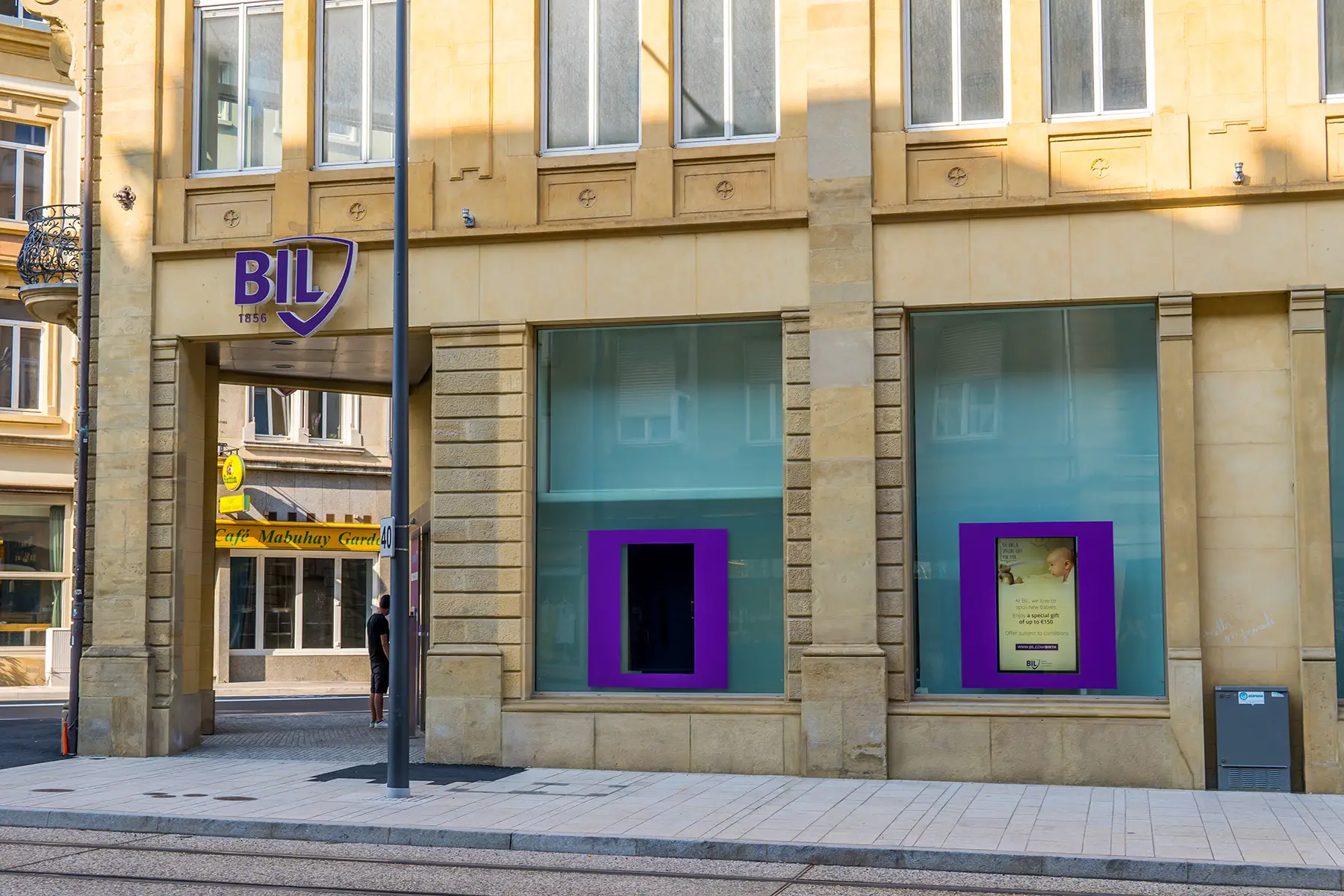Getting a mortgage as a foreigner in Luxembourg is relatively straightforward. Instead, the biggest challenge for expats looking to buy a home is the country’s sky-high housing prices. Below, you’ll find advice on the main types of mortgages, how to apply, and the fees you’ll need to pay.
Let’s dive in:
- Mortgages in Luxembourg
- Can you get a mortgage as a foreigner in Luxembourg?
- Mortgage rates in Luxembourg in 2025
- How much can you borrow for a mortgage in Luxembourg?
- Types of mortgages in Luxembourg
- Buy-to-let mortgages in Luxembourg
- New-build/off-plan mortgages in Luxembourg
- How to apply for a mortgage in Luxembourg
- If you need help getting a mortgage in Luxembourg
- Mortgage fees and costs in Luxembourg
- Taxes and tax relief on mortgages in Luxembourg
- Do you need property insurance to get a mortgage in Luxembourg?
- Mortgage repayments in Luxembourg
- Refinancing a mortgage in Luxembourg
- Useful resources
Wise
Buying property abroad is a big step and involves important financial decisions. Wise, an international money transfer company, provides specialist support to help you navigate large international transfers and save on exchange fees. Fill out Wise’s online form today to find out how they can assist you.
Mortgages in Luxembourg
If you want to buy a property in Luxembourg, you’ll probably need a mortgage to do so. Luxembourg is known for its high property prices, leading some expats to search for homes in neighboring countries. There are plenty of lenders, however, who are willing to offer loans to those who want to put down roots in Luxembourg.
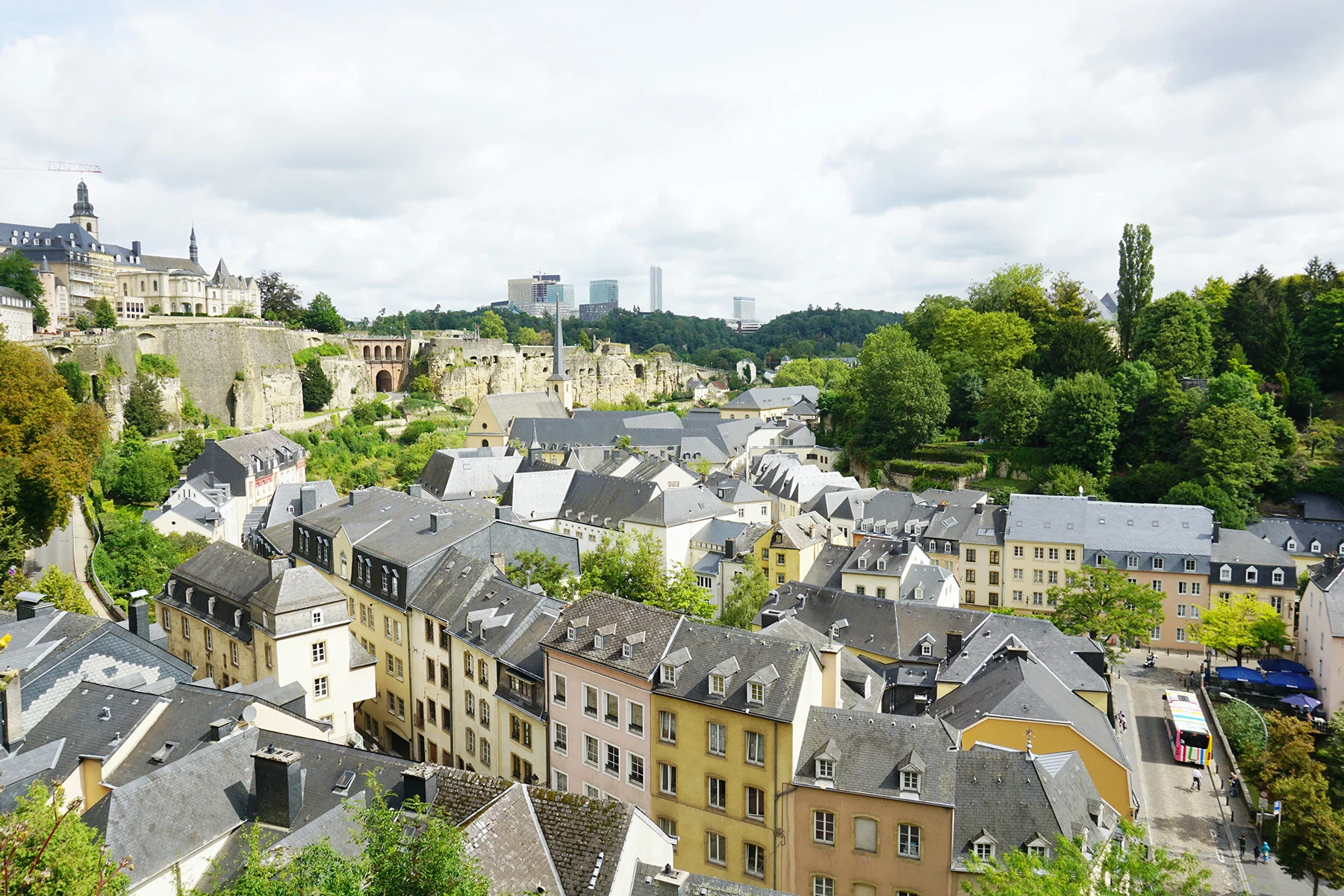
A 2021 report by Luxembourg’s Housing Observatory (Observatoire de l’Habitat) found that 33% of people who owned a property in Luxembourg were mortgage-free. However, the majority of these homeowners were at least 65 years old.
According to an EU country report on Luxembourg in 2024, the average house price fell by 14.4% over the year. This led to a rise in house sales and a 25.4% increase in mortgage transactions.
Can you get a mortgage as a foreigner in Luxembourg?
Foreigners living and working in Luxembourg are free to apply for a mortgage. There are no restrictions on expats taking out a home loan, though US citizens might have fewer options than others.
The Foreign Account Tax Compliant Act (FACTA) requires that countries report on any foreign assets owned by US nationals. This additional layer of bureaucracy means some of Luxembourg’s smaller banks may be less willing to lend to US nationals.
Unlike some European countries, Luxembourg doesn’t offer incentives to entice foreign buyers to invest – because it has no need to. According to EURES data (2025), over 70% of Luxembourg’s workforce is made up of cross-border or migrant workers.
Financial requirements for getting a mortgage
When assessing mortgage suitability in Luxembourg, lenders will look at:
- Income: you will need evidence of stable income, for example three months of bank statements or an employment contract. Your monthly mortgage payment can typically no exceed 45% of your monthly income.
- Savings: you will usually need to provide a deposit of 10–20%, with your mortgage provider lending you the rest, so you’ll need proof of this.
- Credit history: lenders will want to make sure you are reliable with no major outstanding debt.
- Outgoings and expenses: lenders will consider your existing financial commitments, such as regular bills, debts, and other financial obligations.
You can get a mortgage in Luxembourg if you are self-employed or a freelancer. However, you will usually have to provide at least two years of certified accounts or tax returns. Additionally, some lenders may impose additional criteria or ask for a larger deposit.
Mortgage rates in Luxembourg in 2025
Mortgage rates in Luxembourg have risen over the last few years but still remain fairly low. Data from the Luxembourg Central Bank shows that in April 2025, variable rate mortgages averaged 3.5%. Fixed-rate mortgages averaged 3.27%. The Bank publishes the latest mortgage rates on a monthly basis.
How much can you borrow for a mortgage in Luxembourg?
The CSSF limits the maximum percentage of a property you can get a mortgage on.
- First-time buyers can borrow up to 100% of the property’s value, so may require a down payment.
- Non first-time buyers can borrow up to 90% of the property’s value, so will need at least a 10% deposit. Lenders have some flexibility: they can offer higher borrowing levels on 15% of mortgages they grant.
- Buy-to-let investors can borrow up to 80% of the property’s value, so will need a 20% deposit.
Lenders also base how much you can borrow on your income. Generally speaking, your monthly mortgage repayment shouldn’t be more than 35% of your income, though some banks allow up to 45%. Data from the International Monetary Fund (IMF) showed that more than two-thirds of mortgage repayments in Luxembourg exceeded 40% of net household income in the first half of 2023.
Luxembourg mortgage calculator
Many banks provide online mortgage calculators that give an estimate of how much you may be able to borrow. Using the calculators below, type in the price of your house, your income, and your planned mortgage term to get an estimate.
Types of mortgages in Luxembourg
There are several types of mortgage loans in Luxembourg that you can choose from.
- Fixed-rate mortgage: your rate will be fixed for the entire term of your mortgage. This means you’ll know exactly how much you’ll need to pay each month. This comes at a cost – rates on fixed deals are usually higher than variable mortgages.
- Variable rate mortgage: variable mortgages are based on rates set by the Central Bank of Luxembourg. Interest rates can go up or down, so these deals are cheap when rates are low but more expensive if they’re high. Before choosing a variable rate mortgage, think about your financial circumstances and whether you would be able to afford fluctuations in your monthly payment.
- Adjustable rate mortgage: these mortgages fix your rate for a specific amount of time – for example, three, five, or 10 years. After this, you’ll be able to negotiate a new fixed period or move to a variable mortgage.
- Mixed fixed and variable rate mortgage: these deals are less common but allow you to divide your borrowing – some on a fixed rate and some on a variable rate.

The type of mortgage you’ll be able to get will depend on your financial circumstances. This includes the size of deposit you have, your monthly income and expenditure, and your credit history.
The maximum term for a mortgage in Luxembourg is usually 30 years, but it can be as high as 40 years for younger borrowers.
Buy-to-let mortgages in Luxembourg
If you’re buying an investment property in Luxembourg, you’ll need a specialist buy-to-let mortgage.
These deals require a deposit of at least 20% of the property’s value, but if you already have a significant investment portfolio, you might be able to use this as collateral to reduce your deposit. You won’t be able to rely purely on projected rental income alone to get a mortgage. Instead, you’ll need to prove that you have enough collateral, savings, or income from employment to service the loan.
Many banks offer non-amortized mortgages for buy-to-let investors. These mortgages involve the borrower only paying interest each month before paying back the capital at the end of the term. These deals are commonly known elsewhere as interest-only mortgages.
New-build/off-plan mortgages in Luxembourg
Some banks in Luxembourg offer specialist mortgages for people buying new homes or building their own property.
For new homes or building projects, you’ll need to be able to show the lender planning permission, building plans, specifications, and quotes before they’ll consider your application. If you’re buying off-plan (known as ‘sale in future state of completion’ or vente en futur état d’achèvement – VEFA) from a developer, the funding will be released in stages as work is completed.
How to apply for a mortgage in Luxembourg
Once you’ve worked out how much you might be able to borrow and have found a suitable property, you’ll need to formally apply for a mortgage.
Through a bank
You can start the application process by scheduling an appointment with a loan officer. This can be arranged over the phone or via the bank’s website. Shop around to compare rates from several banks before choosing one.
If you apply directly to a bank, you’ll need to provide the property’s Land Registry details, the overall price and price per square meter you intend to pay, and an estimate of any additional fees.
The bank will request proof of your income and outgoings. This is usually provided in the form of pay slips from your employer. In some cases, as an alternative to a cash deposit, investment assets might be used as additional collateral. The bank may require a ‘wage assignment’ – an authorization to claim against your employment income if you fail to make repayments on your mortgage.
On completion day, you will meet a financing officer from the bank to sign the paperwork. If you’re not going to move into the property straight away (for example, if you’re renovating the home first), some banks will allow you to delay your first full repayments and just pay interest instead.
Through a mortgage broker
Using a mortgage broker (someone who finds and applies for the mortgage on your behalf) is less common in Luxembourg than in some countries. However, a broker may be able to find you a better rate by analyzing both the biggest banks and smaller lenders. You might find this expert advice useful – especially as you’ll be new to Luxembourg’s mortgage system.
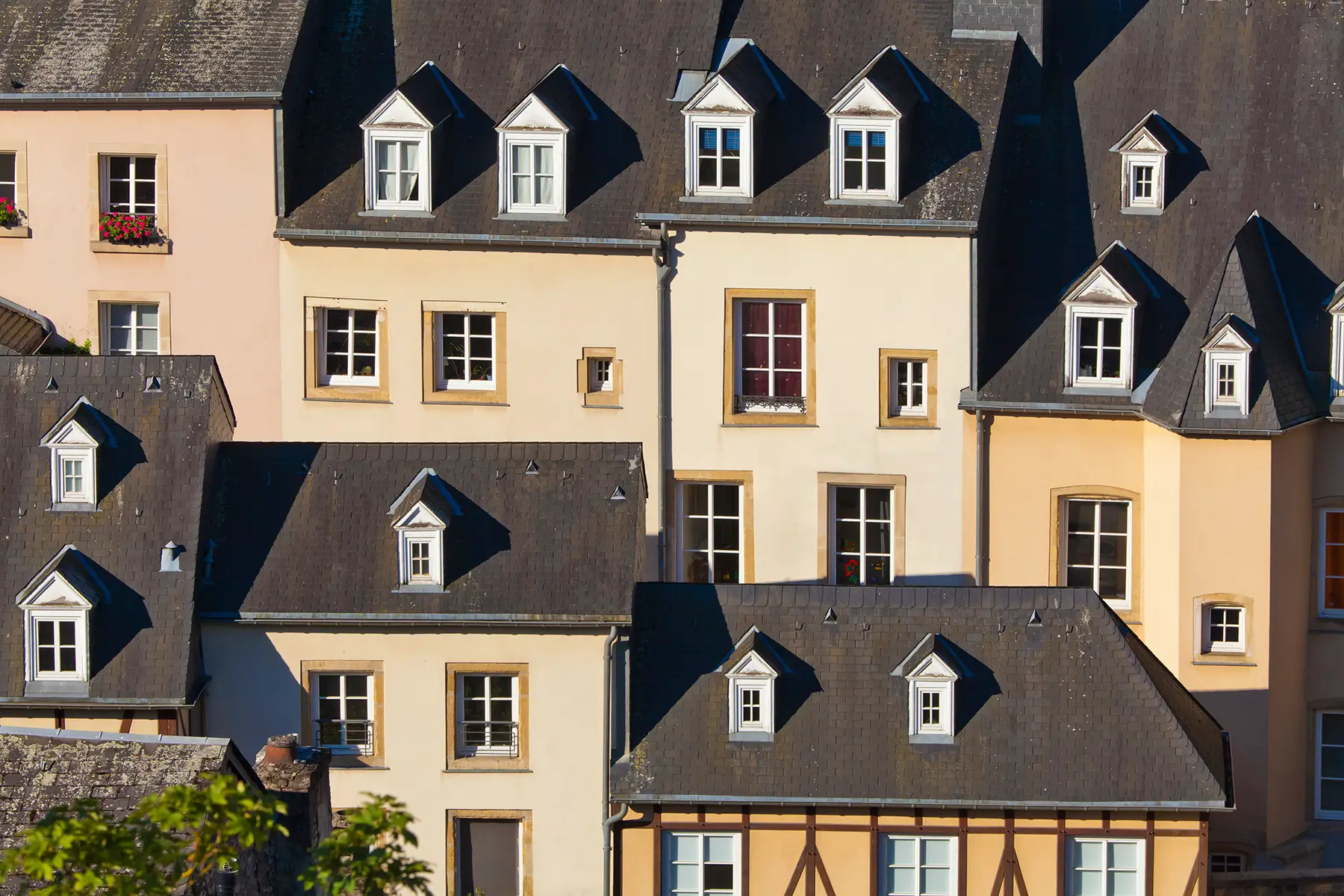
If you need help getting a mortgage in Luxembourg
If you’re struggling to get accepted for a mortgage, you might be able to qualify for a state home loan guarantee.
In this case, the government guarantees the portion of the loan above 60% loan-to-value. It covers up to of 30% of the value of the property, with a maximum of €294,824.
To qualify, you’ll need to adhere to the following rules:
- You must have a home loan savings account with a bank for at least three years, and have deposited at least €1,000 each year (€290 each year prior to 1 January 2024).
- The proposed repayments on your mortgage must not be more than 40% of your income.
- The mortgage lender must be willing to loan you at least 60% of the property value.
Mortgage fees and costs in Luxembourg
When you take out a mortgage, you’ll usually need to pay fees to the lender. These commonly include:
- Administration fee: for setting up the mortgage
- Processing fee: for reviewing and processing your mortgage application
- Notary fee: typically around 1% of the purchase price
Additionally, you will have to pay registration and transcription fees when buying your home. These total 7% of the purchase price.
Rather than charging these fees up-front, lenders in Luxembourg will usually build them into the rate of interest that you pay on the mortgage – so the headline rate you’re offered should include everything.
Taxes and tax relief on mortgages in Luxembourg
Interest paid on mortgages in Luxembourg can be deducted when filing your tax bill. The deduction is only available on your primary residence and ranges from €2,000 to €4,000 a year per household member. The deductible amounts are as follows:
- Years 1–5: €4,000
- Years 6–10: €3,000
- More than 10 years: €2,000
The government has also introduced a tax credit to cover the registration and transcription fees, up to a maximum of €40,000.
Do you need property insurance to get a mortgage in Luxembourg?
Your mortgage lender will usually require you to take out two forms of insurance as part of the conditions of granting your loan. Firstly, most lenders ask for mortgage protection insurance, which covers the repayments on your loan should you die.
Secondly, lenders usually require buildings insurance, which covers the cost of repairs if the structure of the property is damaged – for example, due to fire or flooding.
You may also wish to take out contents insurance to protect your belongings from theft or damage, though this is usually optional.
Mortgage repayments in Luxembourg
Mortgage repayments in Luxembourg are usually made on the same date of each month. If you want to overpay your mortgage or repay it early (for example, if you’ve come into some money), you might need to pay fees to the lender if you’re on a fixed rate mortgage.
An arrangement fee will almost always apply, and you might also be required to pay compensation to the bank for the loss of interest it will incur due to you repaying your loan early. For example, if market rates have dropped, the bank will no longer be able to offer an equivalent loan to a new customer, so it has the right to recoup some of the losses from you.
If you took out the mortgage after 21 March 2016 and have lived in the property for at least two years, the amount you can be charged on the first €450,000 you repay is capped at six months of interest. So if you repay €500,000 early, the first €450,000 will be capped, but the remaining €50,000 won’t.
It’s best to seek advice on your options from an independent mortgage expert before overpaying or repaying your mortgage early.
Refinancing a mortgage in Luxembourg
If you want to remortgage, for example because rates have fallen and you want to restructure your payments, you’ll need to put in a request with your bank to do so.
If you remortgage with the same bank, you might need to pay fees to arrange the new mortgage and cover any early repayment charges (if applicable). The bank doesn’t have to let you remortgage – whether your application is accepted will depend on the specific details of your situation.
If you want to take your business to another lender for a better deal, this will come at a greater cost. You’ll need to pay application fees and early repayment charges or compensation to your old bank. You may also be required to take out new mortgage insurance.
If you’re considering switching to a new lender, you’ll need to weigh up whether the better rate you’ve found elsewhere outweighs the various costs you’ll incur.
Useful resources
- Central Bank of Luxembourg – latest mortgage interest rates
- Luxembourg Housing Observatory – latest house prices
- How to apply for a state mortgage guarantee
